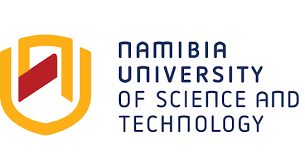Location
Known for being a trendsetter in higher education and applied research internationally, the Namibian University of Science and Technology (NUST) aims to become the leading university in Africa. The Department of Land and Property Sciences (DLPS) offers relevant degrees at undergraduate and post-graduate level including master and doctorate degrees. The Department of Land and Property Sciences (DLPS) at NUST together with the Integrated Land Management Institute (ILMI) are playing a leading role in research and outreach in the field of land governance and administration.
The purpose of NELGA (Network of Excellence for Land Governance in Africa) is to enhance the role of selected African Universities and academic institutions in support of land policy development, implementation and monitoring. NUST was selected as a NELGA node for Southern Africa, because of its proven leadership and track record in academic education, training and research on land governance. To date NUST as a regional NELGA node has granted 6 scholarships (4 masters and 2 PhD’s) on land governance via the DAAD scholarship. The node is in the processes of identifying partner institutions for full implementation of the NELGA activities. One of the key work packages is to establish a regional node for NELGA Southern Africa.
Members:
Resources
Displaying 46 - 50 of 6525 years of land reform
The Land, Livelihoods and Housing Programme aims at deepening and expanding the focus on these three key issues in Namibia. This thematic approach seeks to reflect the wide-ranging skills exiting at the FNRSS, and was developed to guide ILMI’s activities during the 2014-18 period. The programme is organised in four aspects: institutional, environmental, fiscal and spatial processes.
25 years of land reform (ILMI Working paper No. 1).
This Working Paper, the first in the series to be published by ILMI, will briefly review progress in both land reform sectors and raise a few issues that continue to pose challenges to the programme.
The proposed new urban and regional planning bill.
ILMI Brown bag meeting, Thursday 15th October 2015, 12h30-14h00.
The new flexible land tenure act: An update [ILMI Document No. 2/2015].
ILMI Brown bag meeting on Thursday 29th October 2015, 12h30-14h00.
The proposed new urban and regional planning bill.
ILMI Brown bag meeting, Thursday 15th October 2015, 12h30-14h00.


